subscribe to our Newsletter
Understanding Sink Installation Costs: Your Essential Guide

The cost of sink installation can vary widely depending on several factors. The primary determinants include the type of sink you choose (e.g., under-mount, drop-in, farmhouse), the sink's material (stainless steel, porcelain, granite, etc.), and the complexity of the installation job. Depending on the area you reside, the price of Kitchen sink installation will vary. Price may also change if you are replacing an existing sink or installing a new sink!
Additionally, labor costs, plumbing modifications, and any necessary accessories or hardware can impact the overall price. On average, homeowners can expect to pay anywhere from $200 to $1,000 for sink installation, with higher-end sinks and more intricate installations at the upper end of this range. To get an accurate estimate, it's essential to consult with a licensed plumber or a professional contractor who can assess your specific needs and provide a detailed quote based on your preferences and existing plumbing infrastructure.
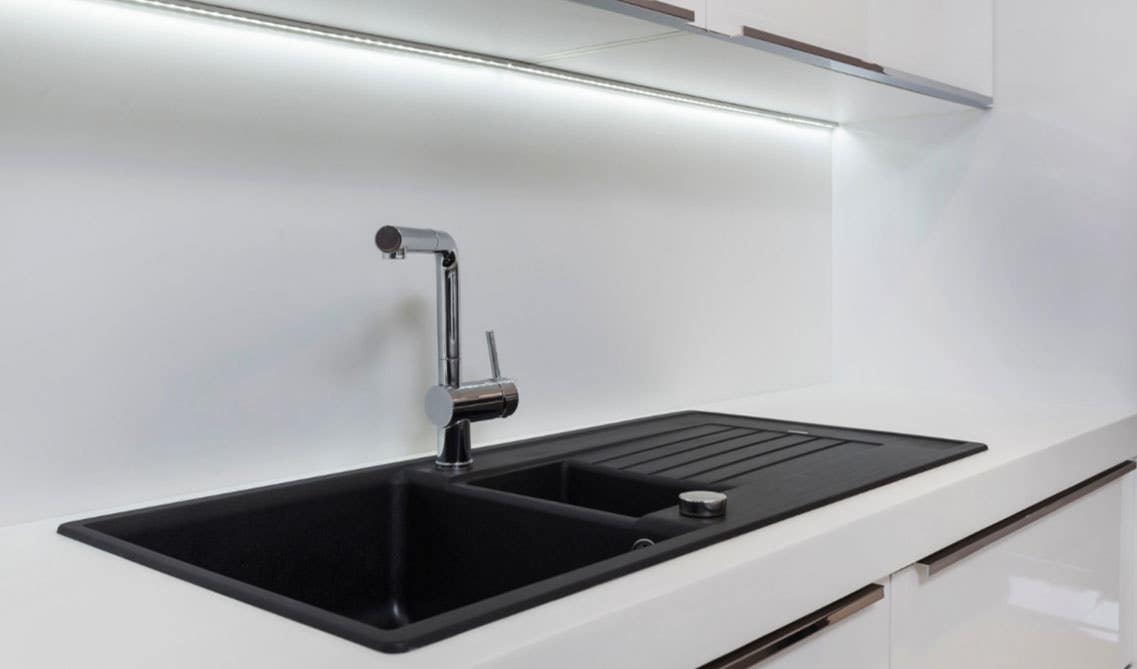
Cost Breakdown:
The cost breakdown of a new sink installation can be broken down into several key components:
Sink Cost:
The cost of the sink itself varies significantly based on factors such as the type (e.g., undermount, drop-in, vessel), material (stainless steel, porcelain, granite, copper, etc.), brand, and size. Sink prices can range from as low as $50 for a basic stainless steel sink to several hundred or even over a thousand dollars for high-end, designer sinks.
Faucet Cost:
If you're replacing the faucet along with the sink, this is an additional cost to consider. Faucet prices vary based on style, material, brand, and features. Basic faucets may start at around $50, while more advanced or stylish options can cost several hundred dollars or more.
Labor Costs:
Hiring a professional plumber or contractor to install the sink is typically necessary, especially if you're making any plumbing modifications. Labor costs vary by location, complexity of the installation, and the plumber's or contractor's rates. On average, you can expect to pay anywhere from $100 to $500 or more for labor.
Plumbing Modifications:
If your new sink requires changes to the existing plumbing, such as rerouting pipes, adding new connections, or adjusting drain lines, these modifications will add to the overall cost. The extent of these changes will dictate the expense.
Accessories and Hardware:
Additional components such as drain strainers, disposal units, garbage disposals, soap dispensers, and sink grids can contribute to the overall cost. Prices for these items vary, but they are generally in the range of $10 to $100 or more each.
Installation Materials:
This includes sealants, adhesives, brackets, and any other materials necessary for securing the sink in place. These costs are relatively minor but should be factored in.
How Much Does it Cost to Install a Sink by Style?
The cost to install a sink can vary based on the style of sink you choose. Here's a general breakdown of installation costs by sink style:
Undermount Sink Installation:
Undermount sinks are installed beneath the countertop, creating a seamless and clean look. Installing an undermount sink typically involves more labor and may require additional support for the sink. On average, expect to pay between $200 to $500 or more for installation, depending on the size and material of the sink.
Drop-in Sink Installation:
Drop-in sinks, also known as top-mount or self-rimming sinks, are easier to install than undermount sinks because they rest on top of the countertop. Installation costs for drop-in sinks are generally lower, ranging from $100 to $300, depending on size and complexity.
Farmhouse Sink Installation:
Farmhouse sinks, which have a large front-facing apron, are popular for their aesthetic appeal. These sinks require custom cabinet modifications to accommodate their size and shape. Farmhouse sink installations can range from $300 to $1,000 or more due to the additional cabinetry work involved.
Vessel Sink Installation:
Vessel sinks sit on top of the countertop and are often used in bathroom settings. Installation costs for vessel sinks can vary widely based on the complexity of the plumbing and countertop modifications required. On average, expect to pay between $150 to $400 or more.
Wall-Mounted Sink Installation:
Wall-mounted sinks are attached directly to the wall and do not rest on a countertop or vanity. These installations tend to be on the lower end of the cost spectrum, with installation costs ranging from $100 to $300, depending on the plumbing complexity.
Bar Sink Installation:
The price of the bar sink itself can vary significantly depending on factors such as the material, brand, size, and style. Bar sinks are typically smaller than kitchen sinks, so they tend to be more affordable. Basic bar sinks can start at around $50, while higher-end or specialty bar sinks can cost several hundred dollars or more.
How Much Does a Sink Cost by Material?
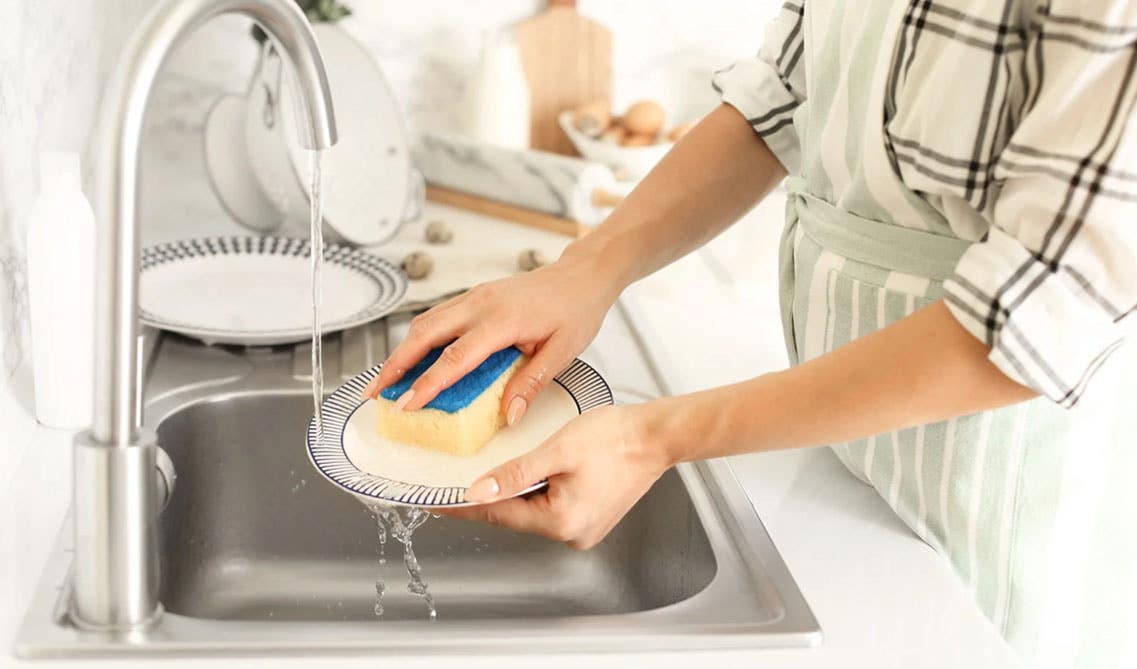
Sink Material Typical Costs (With Installation)
Stainless Steel | $200 - $1,500 |
Cast Iron | $200 - $900 |
Composite | $300 - $600 |
Quartz | $800 - $1,200 |
Glass | $400 - $2,000 |
Copper | $400 - $4,000 |
Granite | $600 - $2,500 |
Porcelain | $90 - $1,500 |
Additional Costs
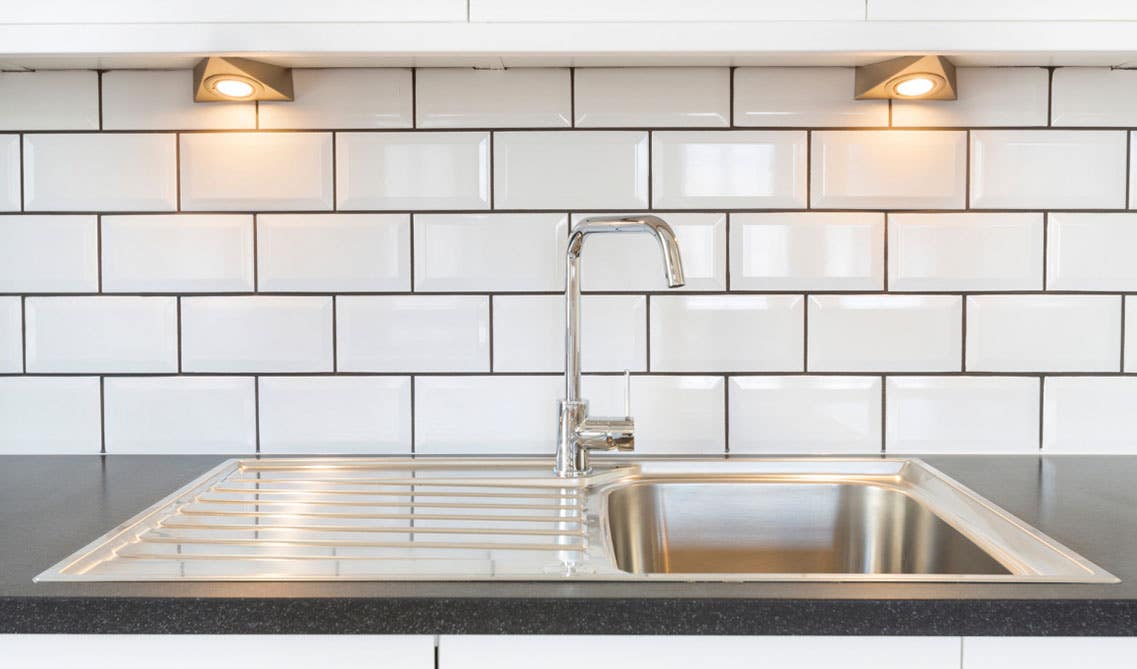
When installing a new sink, there are several additional costs and considerations beyond the sink and faucet itself. Here are some of the common additional costs to keep in mind:
Plumbing Modifications:
Depending on the type of sink you're installing and its location, you may need to make plumbing modifications. This could include moving or adding water supply lines, rerouting drain pipes, or adjusting the plumbing connections to fit the new sink. These modifications can significantly impact the overall cost of the installation.
Labor Costs:
Hiring a professional plumber or contractor for the installation is recommended, and their labor fees will be a significant part of the overall cost. Labor costs can vary depending on your location, the complexity of the installation, and the plumber's or contractor's rates.
Countertop or Cabinet Modifications:
If you're changing the style or size of the sink significantly, you may need to make modifications to your countertop or cabinets to accommodate the new sink. For example, farmhouse sinks and undermount sinks often require custom cabinet work, which can add to the cost.
Additional Hardware and Accessories:
Beyond the sink and faucet, you might need to purchase additional hardware and accessories. This could include items like drain strainers, garbage disposals, soap dispensers, sink grids, and more. The cost of these items can vary depending on their quality and features.
Installation Materials:
You'll need various materials to properly install the sink, such as sealants, adhesives, mounting brackets, and fasteners. These materials are essential for securing the sink in place and ensuring a watertight seal.
Disposal Fees:
If you're replacing an old sink, you'll need to dispose of the old one. Some municipalities charge fees for disposing of large fixtures like sinks, so be sure to check if any disposal fees apply in your area.
Unexpected Repairs:
In some cases, when old sinks are removed, underlying plumbing issues or damage to the surrounding area may be uncovered. Be prepared for the possibility of unexpected repairs or upgrades that could increase the overall cost.
Design and Aesthetic Upgrades:
If you're doing a full kitchen or bathroom remodel along with sink installation, consider the cost of design upgrades, such as new backsplashes, countertops, or cabinetry, as these can significantly impact the overall project cost.
How Much Does it Cost to Install a Sink Yourself?
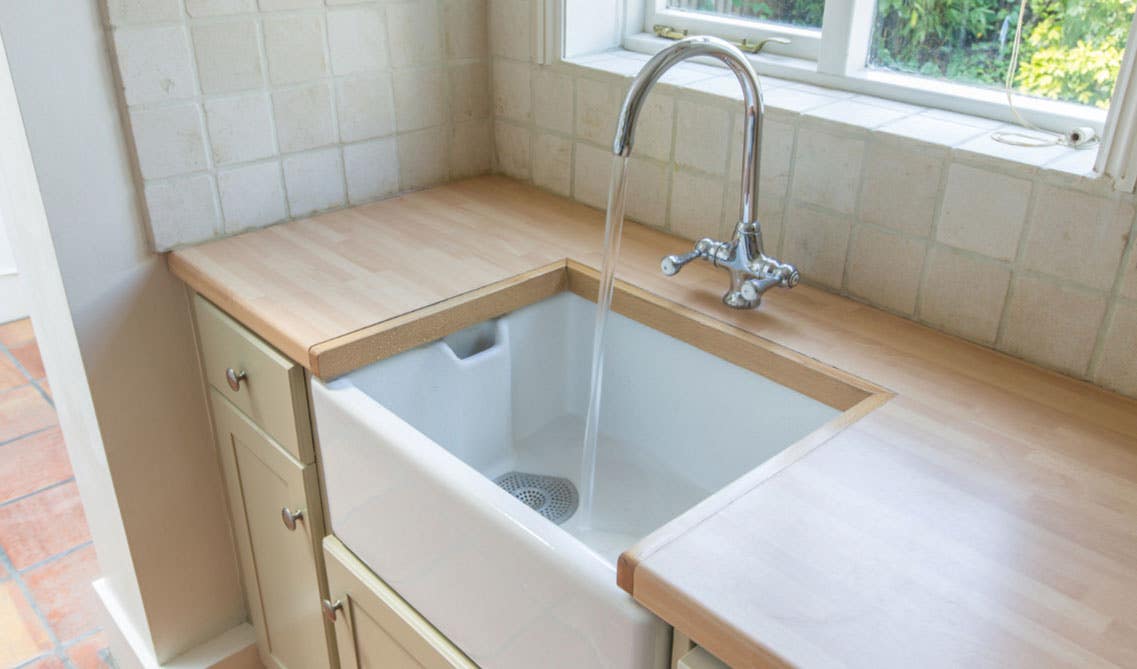
The cost of installing a sink yourself can vary significantly depending on several factors, including the type of sink, your level of DIY experience, and the tools and materials you already have on hand. Here's a general breakdown of the potential costs involved in a DIY sink installation:
Sink and Faucet Cost:
The cost of the sink and faucet itself will vary based on the style, material, and brand you choose. Basic sinks can start at around $50, while higher-end or specialty sinks and faucets can cost several hundred dollars or more.
Tools and Materials:
If you don't already own the necessary tools and materials for the installation, you'll need to purchase or rent them. Common tools for sink installation include a wrench, screwdrivers, pliers, pipe cutters, tubing, sealants, and adhesives. The cost of these tools can vary, but a basic set might range from $50 to $100 or more.
Plumbing Supplies:
Depending on the complexity of your installation, you may need additional plumbing supplies such as pipes, connectors, fittings, and Teflon tape. The cost of plumbing supplies will depend on your specific needs but could range from $20 to $100 or more.
Safety Equipment:
Safety should always be a priority when doing DIY work. Safety equipment such as gloves, safety glasses, and a mask may be necessary, and these items can cost around $20 or more.
Instruction Manuals and Guides:
If you're not experienced in sink installation, you might consider purchasing a DIY guide or tutorial, which can provide step-by-step instructions. These resources can range from free online tutorials to books or video courses that may cost anywhere from a few dollars to over $50.
Additional Accessories:
Depending on your preferences and needs, you may want to purchase additional accessories like drain strainers, garbage disposals, soap dispensers, and sink grids. The cost of these accessories can vary widely but may range from $10 to $100 or more each.
Keep in mind that DIY sink installation is not recommended for everyone, especially if you lack plumbing or DIY experience. If you make mistakes during the installation, it can lead to costly repairs or even water damage. Additionally, some types of sink installations, such as undermount sinks, can be more complex and may require professional expertise.
If you're confident in your DIY skills and have the necessary tools and materials, you can save on labor costs by installing a sink yourself. However, if you have any doubts or the installation involves complex plumbing work, it's safer and more cost-effective in the long run to hire a professional plumber or contractor to ensure the job is done correctly and to code.
Related Blogs:
- 10 Popular Kitchen Sink Styles- Pros and Cons
- How to Unclog Your Kitchen or Bathroom Sink
- How to Choose A Kitchen Sink To Fit Your Layout
- 9 Clever Corner Kitchen Sink Ideas To Maximize Space
FAQ
1. How long does it take to install a sink?
An experienced plumber will take around 2 hours but if you plan to install a sink yourself, plan for 4-6 hours.
2. How much does it cost to pipe a sink?
It's about $450- $1800 to pipe a sink.
3. Does a plumber install a sink faucet?
Yes! This is a common job for plumbers!
4. How often do sink pipes need to be replaced?
Brass, cast iron, and steel have a lifespan of 80-100 years, copper can last up to 80 years, and PVC piping only lasts for about 24-50 years.
Recent Blogs
Kitchen Decor
What Your Wife Really Wants for Mothers Day
Kitchen Cabinets,Wood Cabinets,Cabinet Tips,Cab...

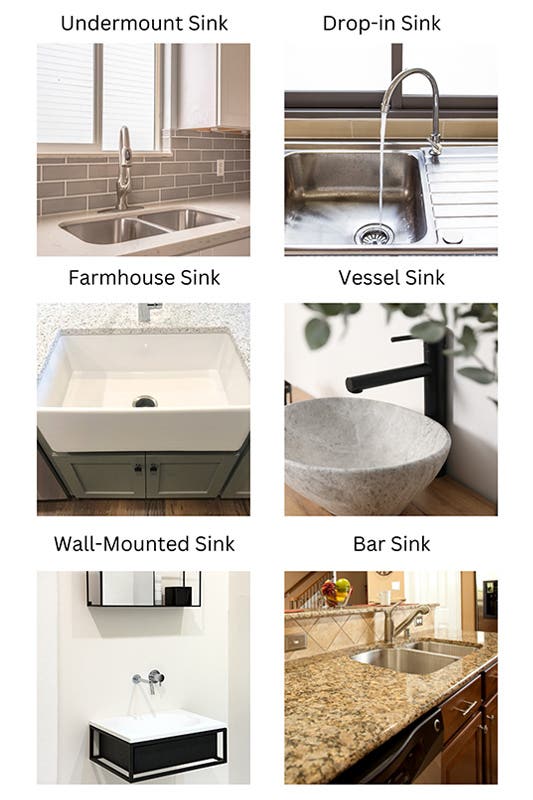

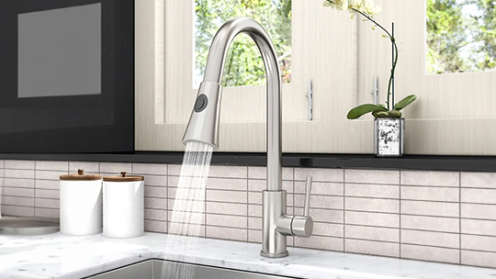
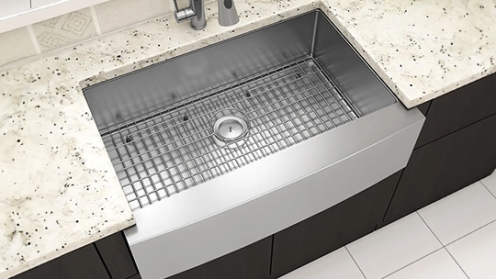
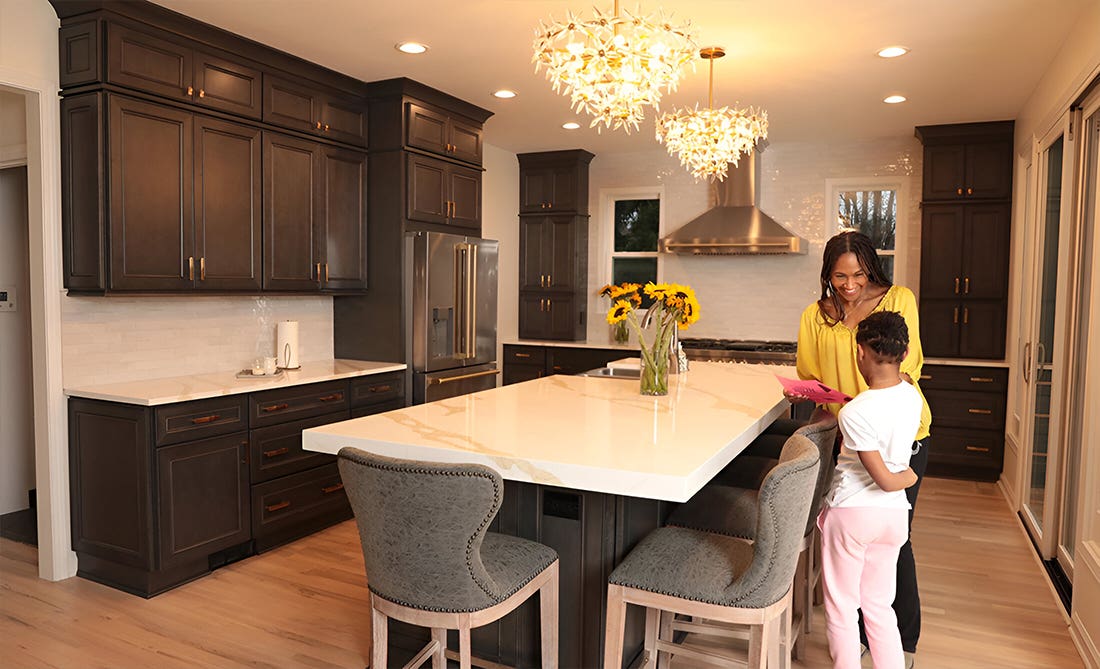

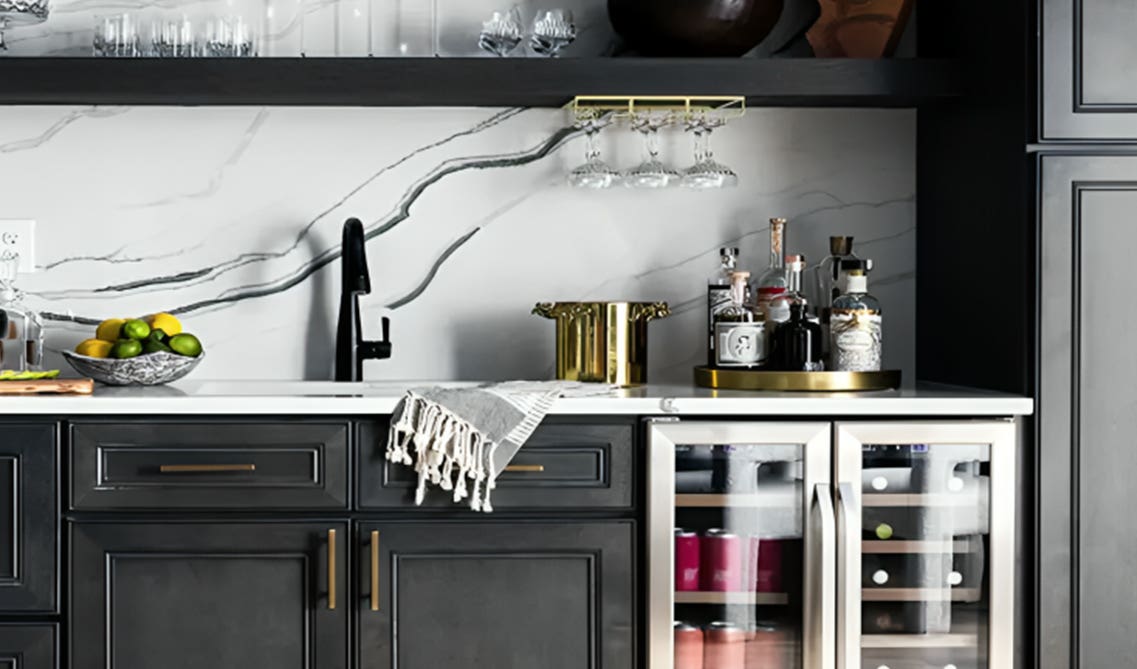



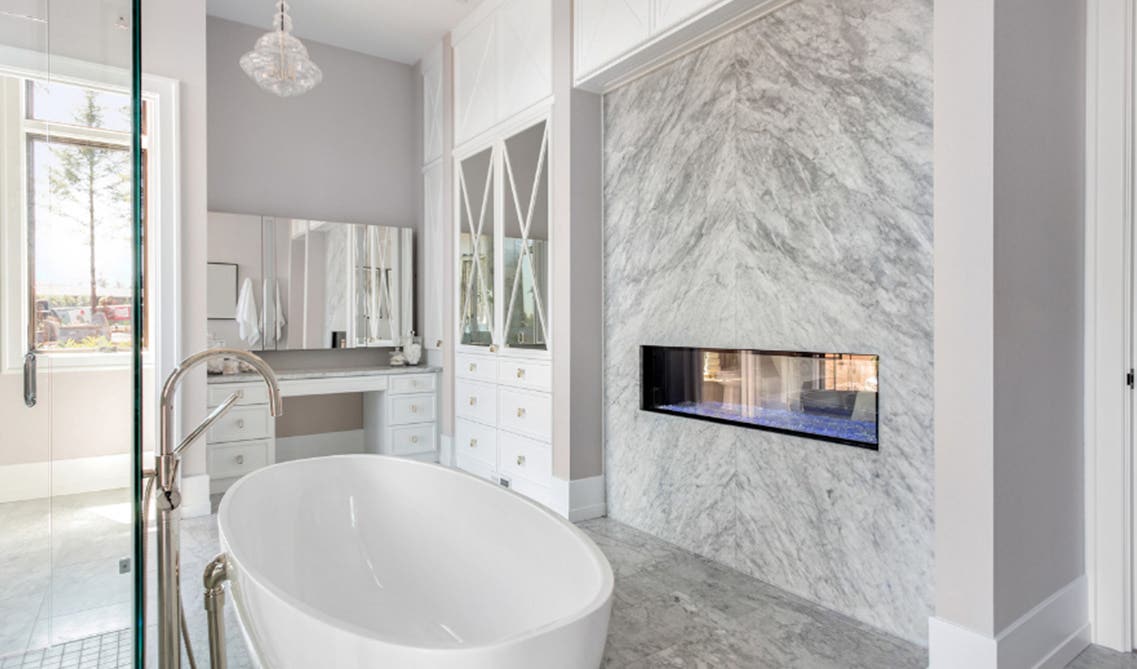
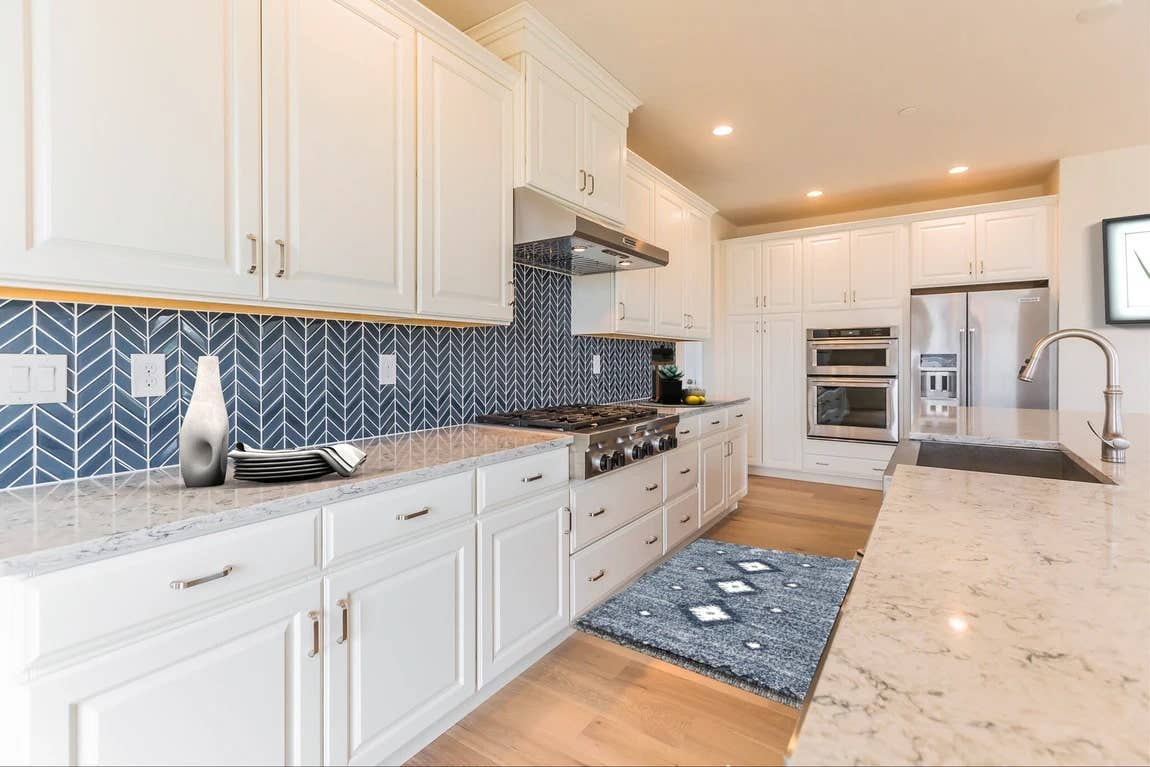




Comments